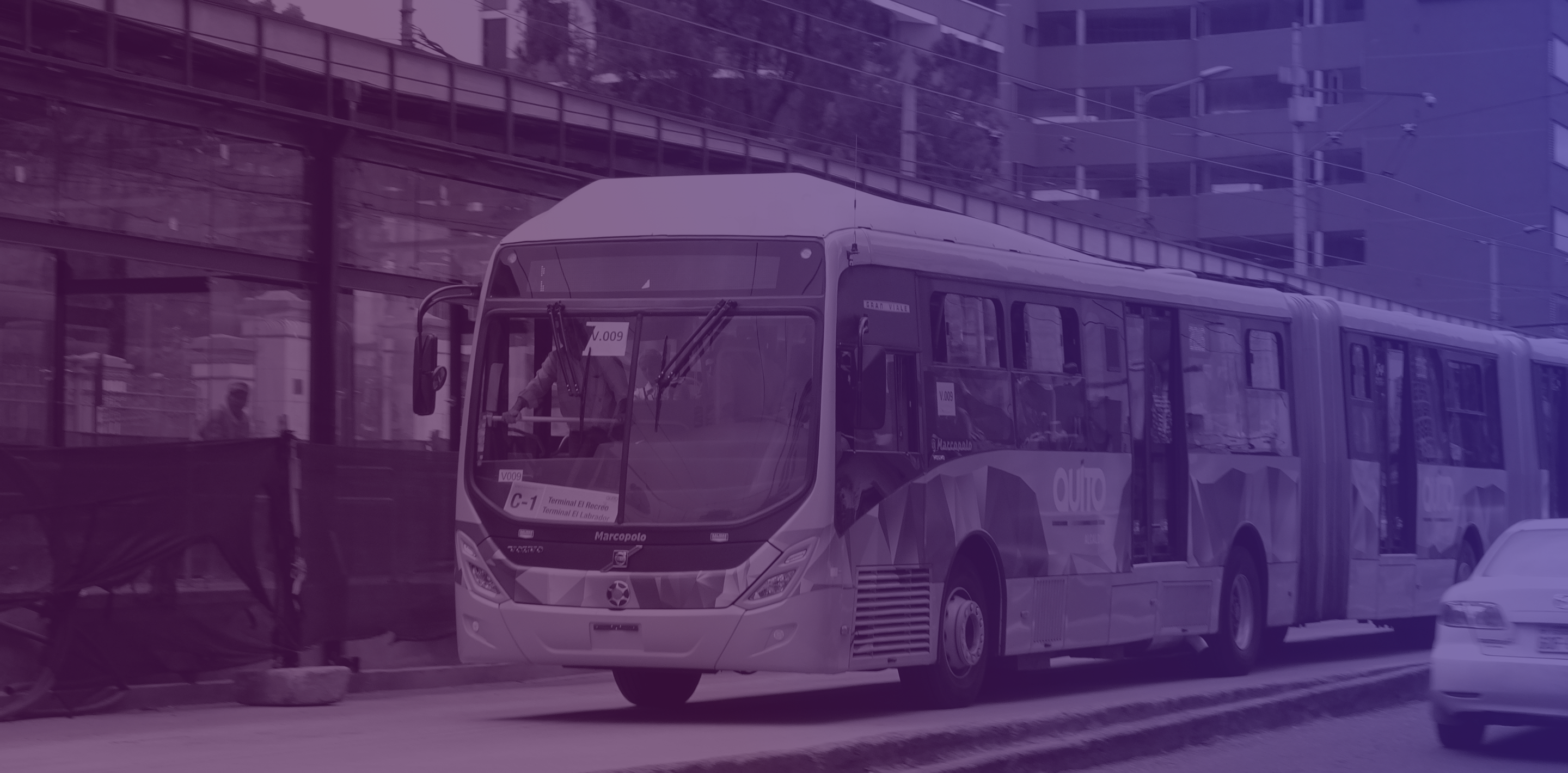- Population: 2.200.000
- Land area: 352 km2
- Daily Travelers: 4.600.000

- Population: 2.200.000
- Land area: 352 km2
- Daily Travelers: 4.600.000
Gender Mainstreaming
Quito was the first city in the Americas to become part of the UN Women’s Global Initiative Safe Cities Free of Violence against Women and Girls in 2010. Since then, the city has been working on a number of initiatives to improve the conditions of public transportation systems and public spaces for women. In 2012, the Metropolitan Ordinance 0235 Policy for the Eradication of Gender-Based Violence (Política de Erradicación de la Violencia basada en Género) was approved, which has been one of the main regulatory frameworks for the implementation of gender-focused actions.
The Municipality of Quito has been working to produce a baseline on the situation of harassment and sexual violence in the city. The first Baseline on Sexual Violence against Women and Girls in Public Spaces was carried out in 2012 in two Zonal Administrations south of Quito. Subsequently, an update was made by the Observatory of Citizen Security (Observatorio de Seguridad Ciudadana) in 2015. Both studies have highlighted the critical situation of women in transportation systems and public spaces.
Based on the first survey, the Quito, Safe City for Women and Girls Plan was drawn up in 2013, which included four sectoral strategies, the first of which was Safe and secure transportation free of sexual harassment against women and girls. This initiative was designed in collaboration with government and civil society stakeholders (Municipality of Quito and UN Women, 2014).
During the current administration, the Mayor of Quito highlights and strengthens gender initiatives within the framework of the UN Women’s Global Program and supported by the coordination of Municipal Board San Jose (Unidad Patronato Municipal San José), the delegated entity responsible for implementing the gender policy of Quito Mayor’s Office, through the creation of the Gender Unit. Municipal Board San Jose has been the entity in charge of leading the current gender initiatives in transportation, within the framework of an Annual Work Plan mainly coordinated with UN Women and other organizations such as the Inter-American Development Bank (IADB), the Latin American Development Bank (CAF) and the World Bank. In 2016, the Mayor of Quito declared the city a Safe city for women and girls, as a special signature project, through Metropolitan Resolution 009, which has made it possible to prioritize actions to achieve the objectives of the project.
Para ver esta información
debes ser miembro de TGL
Contact us

 Login
Login